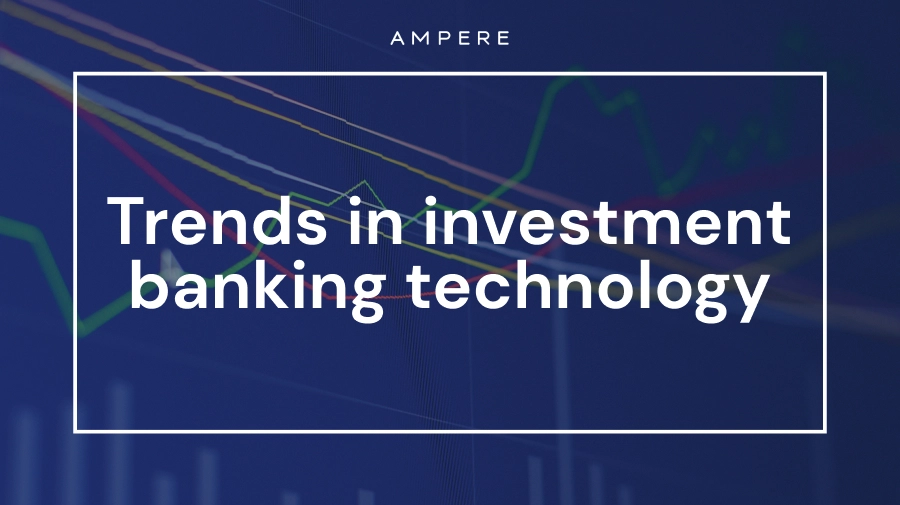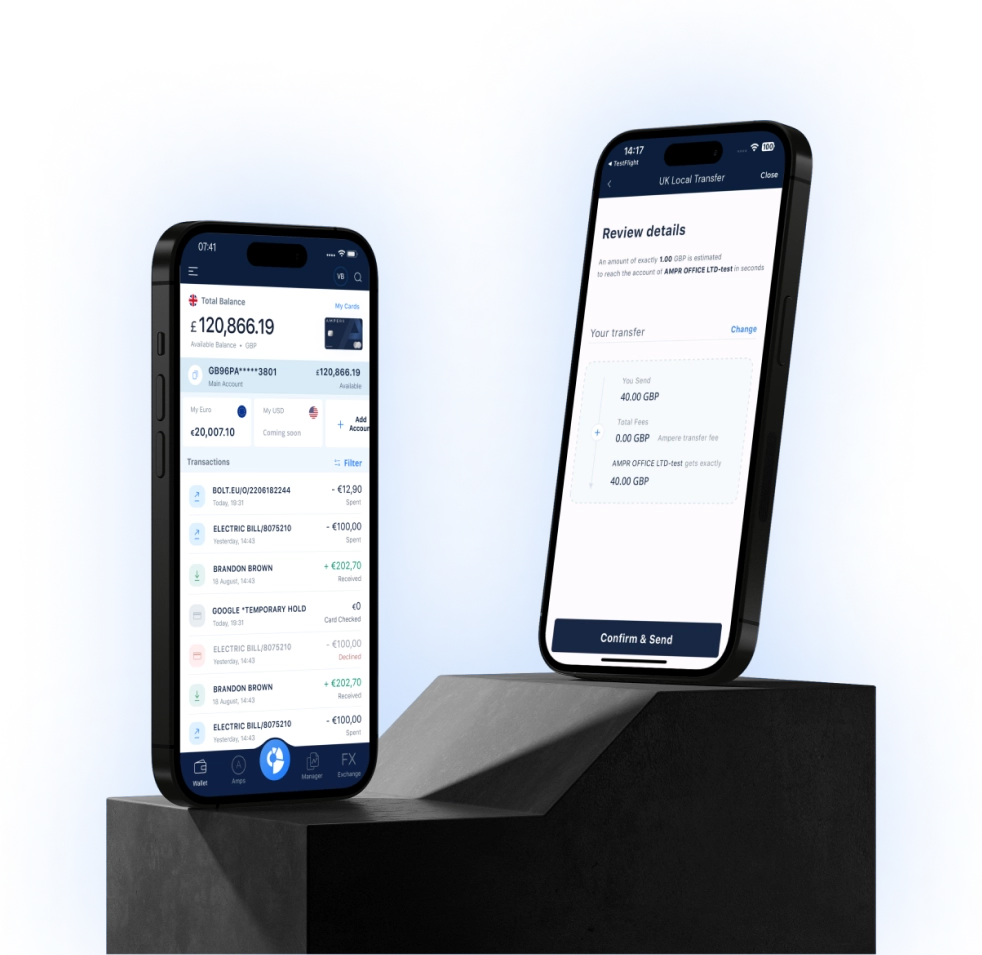
Trends in investment banking technology
What must you know to be on top of the investment banking industry?
Global IT spending is expected to reach $4.5 trillion by the end of 2023. With such rapid growth, it is reasonable to conclude that digital technologies have affected practically every aspect of life, including banking. The banking business is moving quicker than ever, thanks to the introduction of fintech.
Do you want to stay on top of the investment banking industry and be the leader in a highly competitive field? Here is the list of trends that are currently booming across the world.
Relationship management
Relationship management solutions are mainly built for deal-driven teams to optimise their business development workflow and make their networks work for them. Your most valuable technological asset is the investment bankers' network of contacts across industry groups, product groups, and financial sponsor coverage teams.
If you handle this asset well, you can achieve outstanding results in the investment banking industry.
Direct listing
Most businesses currently get finance through direct listings rather than IPOs, and IPOs require underwriters who charge a commission. A direct listing is preferred by those who can't underwrite, don't want dilution, or wish to avoid lockup periods.
Direct listings have generated a need for new technology platforms to aid small and medium-sized businesses with the entire process. Several off-the-shelf disruptive technological solutions for direct listings that save companies millions of dollars will likely be developed soon.
Artificial Intelligence (AI)
AI and machine learning have revolutionised investment data and are helping central banks better understand consumer patterns, point-of-sale lending decisions, and other supply-demand gaps. AI-driven banks can streamline investor trade procedures for speedier trading. Some use advanced learning methods to anticipate client investment success.
AI's fraud detection and credit-rating algorithms have also revolutionised FinTech. AI can detect and manually verify fraudulent transactions to prevent investment fraud. Smaller FinTech businesses with minimal consumer data can better analyse consumer credit ratings and repayment capabilities and lend without collateral.
Open banking
Open banking is another PSD2 and Open API-based investment banking movement. Investment banks can use Open API to access client account data and payment infrastructure with third-party providers (TPP) utilising open banking.
Open banking “deploys“ a client-focused banking service, better customer care, and more services in a more convenient manner. For startups in the financial sector, open banking opens up many opportunities - the ability to initiate payments from a client's account and receive transaction data.
On the other hand, this is a risk for traditional banks. Information sharing breaks investment banks' monopoly. However, the future inspires progress. Sharing data and competing in new conditions requires new services, innovation, and customer experience.
Natural Language Programming
With the aid of AI, Natural Language Programming (NLP) is enhancing the interactions between computers and human language. NLP enables investment analysts to convert unstructured data into structured at an unprecedented rate. It can convert annual investment reports, investor calls, and regulator statements into simple information.
NLP has widespread applications in the process of due diligence. Teams conducting owing diligence can now utilise NLP to process information more quickly and enhance the productivity of an otherwise time-consuming task.
Virtual Data Rooms
A Virtual Data Room (VDR) is a secure online database that may contain confidential data. VDRs are often utilised as continuing repositories for financial information, letting firms store, safeguard, and securely retrieve essential documents.
With the advent of cyber-attacks, virtual data rooms (VDRs) have given a perfect option for banks to store essential business data electronically. They are treasured to keep transactional data for mergers, acquisitions, and firm IPOs. Access to this information is restricted to the appropriate parties, resulting in higher efficiency, improved security, and improved regulatory compliance.
Mobile Apps
All major investment banks now have complex apps that deliver services previously only available in a physical location. These include access to real-time market data, the most recent market information, investment banking industry publications, and other services.
Users may develop personalised dashboards to communicate data with their representatives directly.
The investment banking industry is rapidly changing with the advent of digital technologies and fintech. Access to the most recent trends in investment banking may be beneficial, but how you use it is essential. Even the most modern financial technology will not benefit you if you neglect to use it correctly. Therefore banks must stay current with these trends to remain competitive and provide the best services to their clients.

